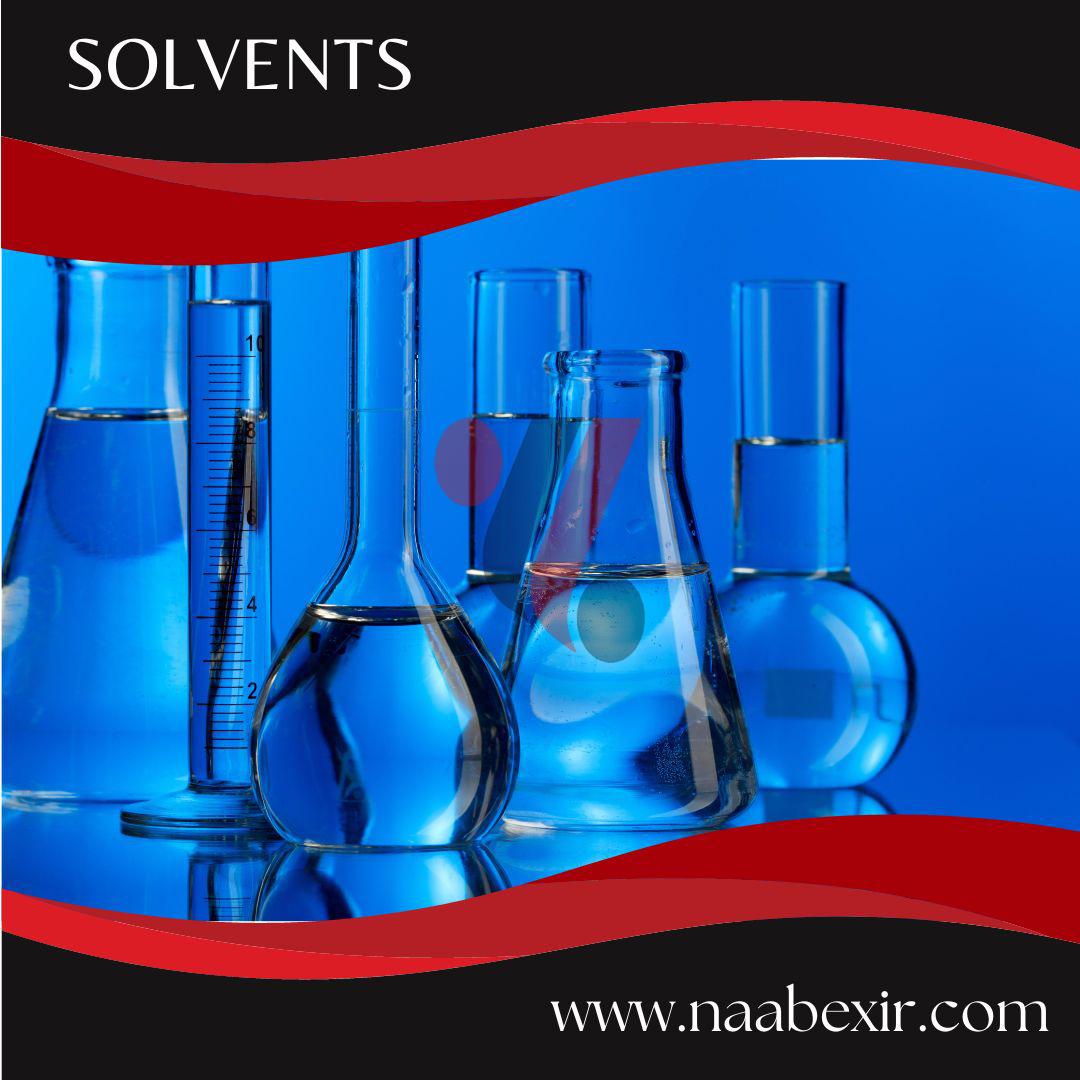**Industrial Solvents and Their Applications**
Industrial solvents are substances used in various industrial processes to dissolve, dilute, or disperse other materials. They play a vital role in industries such as manufacturing, cleaning, pharmaceuticals, chemistry, and more. Solvents are chosen based on their ability to dissolve specific materials, evaporation rates, and safety considerations. Below are several types of industrial solvents and their applications:
1. **Hydrocarbon Solvents:** These solvents are derived from petroleum and are typically used for cleaning and degreasing materials. Examples include mineral spirits, kerosene, and naphtha. Hydrocarbon solvents are commonly used in industries such as automotive, manufacturing, and construction.
2. **Alcohol Solvents:** Ethanol and isopropyl alcohol are commonly used as solvents for cleaning, disinfecting, and in the production of pharmaceuticals and cosmetics.
3. **Ketone Solvents:** Ketones like acetone and methyl ethyl ketone (MEK) are used for various purposes, including paint thinning, adhesive removal, and in the production of plastics and synthetic fibers.
4. **Ester Solvents:** Esters like ethyl acetate are used in the production of paints, coatings, adhesives, and are also employed in the food and fragrance industries.
5. **Chlorinated Solvents:** This group includes solvents like trichloroethylene and perchloroethylene. They are used for degreasing, dry cleaning, and metal cleaning. However, their use is decreasing due to environmental and health concerns.
6. **Aromatic Solvents:** Aromatic solvents such as toluene and xylene are often used as paint thinners, inks, adhesives, and in the production of chemicals and polymers.
7. **Glycol Ether Solvents:** These solvents, including ethylene glycol ethers and propylene glycol ethers, find applications in the production of paints, coatings, and cleaning products.
8. **Halogenated Solvents:** Solvents like dichloromethane and chloroform are used in chemical manufacturing and synthesis. However, their use is limited due to environmental and health considerations.
9. **Water:** Sometimes, water is used as a solvent in industrial processes, especially when the materials are water-soluble. Water-based solvents are considered more environmentally friendly.
10. **Supercritical Fluid Solvents:** Materials like carbon dioxide in its supercritical state can act as solvents for specific applications, such as extracting substances in the food and pharmaceutical industries.
It's important to note that the choice of solvent varies depending on the specific application, the materials involved, safety considerations, environmental impact, and legal requirements. Additionally, as awareness of environmental and health impacts grows, industries are exploring alternatives to traditional solvents that are more environmentally friendly and less hazardous.
Industrial solvents are substances used in various industrial processes to dissolve, dilute, or disperse other materials. They play a vital role in industries such as manufacturing, cleaning, pharmaceuticals, chemistry, and more. Solvents are chosen based on their ability to dissolve specific materials, evaporation rates, and safety considerations. Below are several types of industrial solvents and their applications:
1. **Hydrocarbon Solvents:** These solvents are derived from petroleum and are typically used for cleaning and degreasing materials. Examples include mineral spirits, kerosene, and naphtha. Hydrocarbon solvents are commonly used in industries such as automotive, manufacturing, and construction.
2. **Alcohol Solvents:** Ethanol and isopropyl alcohol are commonly used as solvents for cleaning, disinfecting, and in the production of pharmaceuticals and cosmetics.
3. **Ketone Solvents:** Ketones like acetone and methyl ethyl ketone (MEK) are used for various purposes, including paint thinning, adhesive removal, and in the production of plastics and synthetic fibers.
4. **Ester Solvents:** Esters like ethyl acetate are used in the production of paints, coatings, adhesives, and are also employed in the food and fragrance industries.
5. **Chlorinated Solvents:** This group includes solvents like trichloroethylene and perchloroethylene. They are used for degreasing, dry cleaning, and metal cleaning. However, their use is decreasing due to environmental and health concerns.
6. **Aromatic Solvents:** Aromatic solvents such as toluene and xylene are often used as paint thinners, inks, adhesives, and in the production of chemicals and polymers.
7. **Glycol Ether Solvents:** These solvents, including ethylene glycol ethers and propylene glycol ethers, find applications in the production of paints, coatings, and cleaning products.
8. **Halogenated Solvents:** Solvents like dichloromethane and chloroform are used in chemical manufacturing and synthesis. However, their use is limited due to environmental and health considerations.
9. **Water:** Sometimes, water is used as a solvent in industrial processes, especially when the materials are water-soluble. Water-based solvents are considered more environmentally friendly.
10. **Supercritical Fluid Solvents:** Materials like carbon dioxide in its supercritical state can act as solvents for specific applications, such as extracting substances in the food and pharmaceutical industries.
It's important to note that the choice of solvent varies depending on the specific application, the materials involved, safety considerations, environmental impact, and legal requirements. Additionally, as awareness of environmental and health impacts grows, industries are exploring alternatives to traditional solvents that are more environmentally friendly and less hazardous.
 English
English  فارسی
فارسی 

